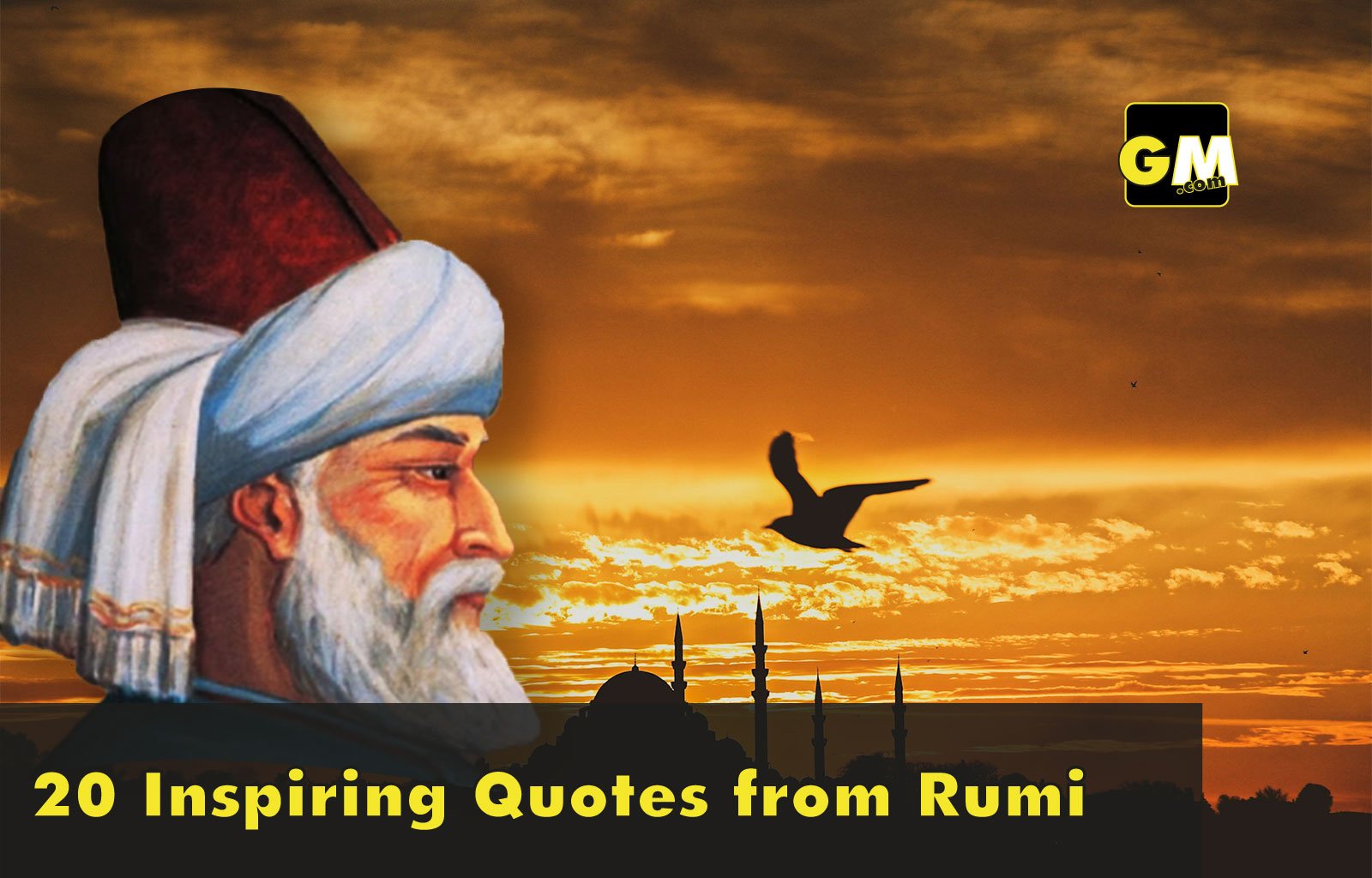
Mevlana Rumi was a 13th-century Persian poet and Sufi mystic, who has inspired countless people with his profound wisdom and beautiful poetry. Here are 20 of his most inspiring quotes:
“Raise your words, not voice. It is rain that grows flowers, not thunder.”
Rumi
- “The wound is the place where the Light enters you.”
- “Your task is not to seek for love, but merely to seek and find all the barriers within yourself that you have built against it.”
- “Raise your words, not voice. It is rain that grows flowers, not thunder.”
- “You were born with wings, why prefer to crawl through life?”
- “Instead of looking for reasons to be offended or hurt, always be looking for ways to love and be loved.”
- “Beauty surrounds us, but usually we need to be walking in a garden to know it.”
- “I want to sing like the birds sing, not worrying about who hears or what they think.”
- “Everything that is made beautiful and fair and lovely is made for the eye of one who sees.”
- “We are born of love; Love is our mother.”
- “Let the beauty of what you love be what you do.”
- “It takes much more courage to be in love than it does for war.”
- “You say you love rain, but you use an umbrella to walk under it.”
- “The truth is, everyone is going to hurt you. You just got to find the ones worth suffering for.”
- “Finding someone you love and who loves you back is a wonderful, wonderful feeling.”
- “Out of suffering have emerged the strongest souls; the most massive characters are seared with scars.”
- “Always remember you are braver than you believe, stronger than you seem, smarter than you think and twice as beautiful as you’d ever imagined.”
- “A Candle never Loses any of its Light while Lighting up another candle.”
- “If you want to win hearts, sow the seeds of Love.”
- “The world is nothing but a moment.”
- “What comes, will go. What is found, will be lost again. But what you are is beyond coming and going and beyond description.”
“Out of suffering have emerged the strongest souls; the most massive characters are seared with scars.”
Rumi
A Brief Biography of Rumi
Jalāl al-Dīn Muhammad Rūmī, commonly known as Rumi, was born on September 30, 1207, in Balkh (present-day Afghanistan). He was a 13th-century Persian poet, Islamic scholar, and Sufi mystic. Rumi’s family fled to Konya (city in Türkiye) due to the Mongol invasions, where he spent the rest of his life.
Rumi’s Most Famous Works include:
- “Masnavi” (Masnavi-I Ma’navi) – Often referred to as Rumi’s magnum opus, this is a six-book spiritual epic and one of the most famous pieces of Sufi literature.
- “Divan-e Shams-e Tabrizi” (The Works of Shams of Tabriz) – This is a collection of lyric poems (ghazals) named in honor of Rumi’s spiritual teacher, Shams Tabrizi.
- “Fihi Ma Fihi” (It Is What It Is) – A collection of Rumi’s discourses and teachings.
- “Majalis-e Sab’a” (Seven Sessions) – Seven sermons that Rumi gave to his disciples and followers.
His emphasis on love, compassion, and the pursuit of spiritual truth resonates with many people, regardless of their faith. He passed away on December 17, 1273, in Konya, and his tomb remains a place of visit for people from all over the world.
Source: www.Wikipedia.com, www.Britannica.com
